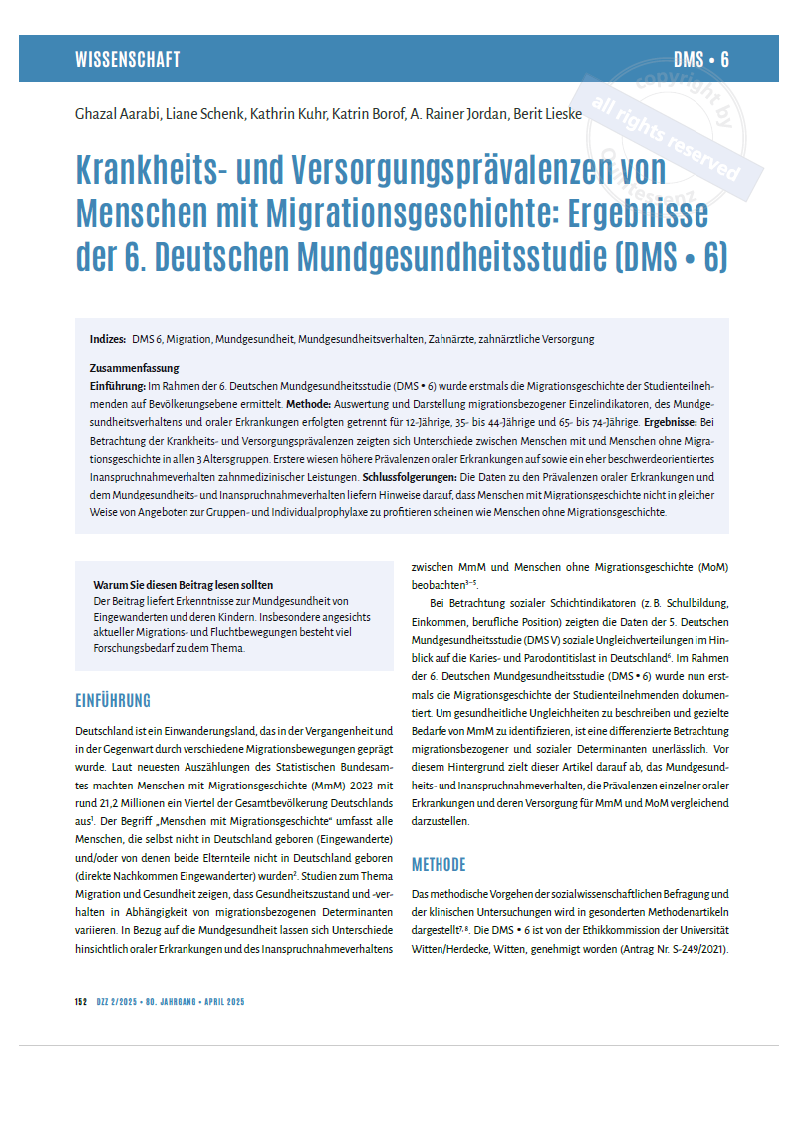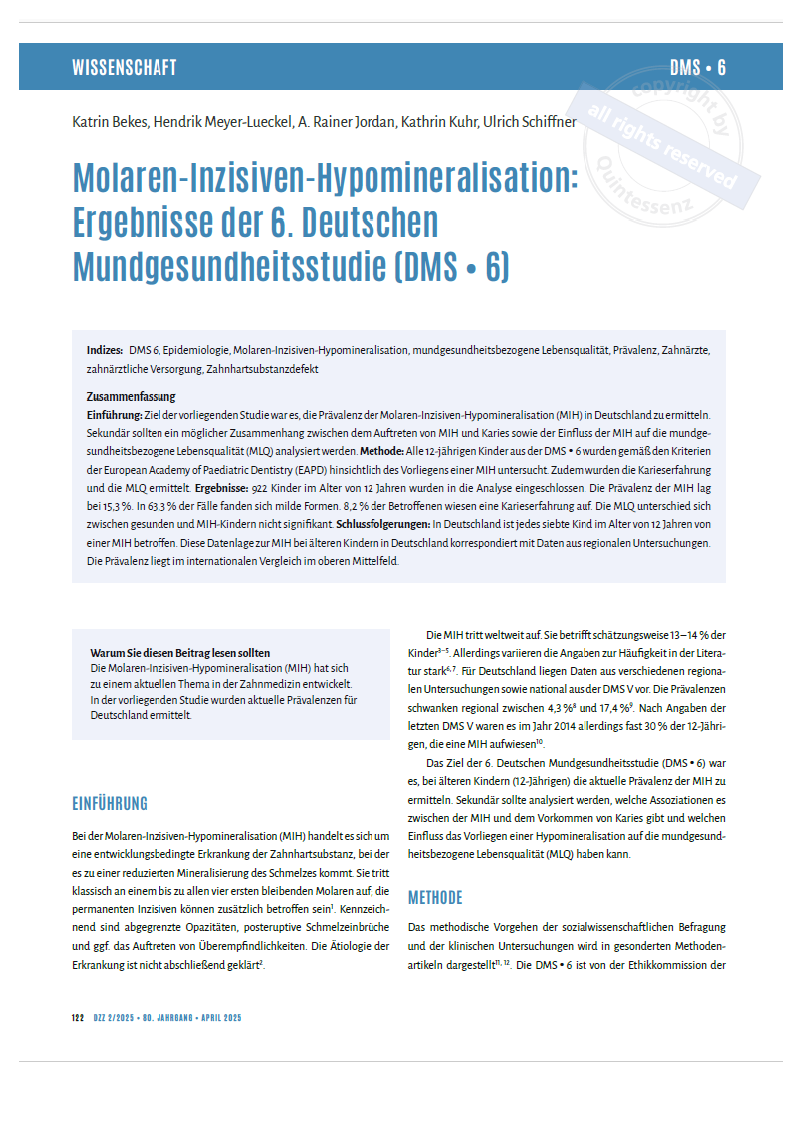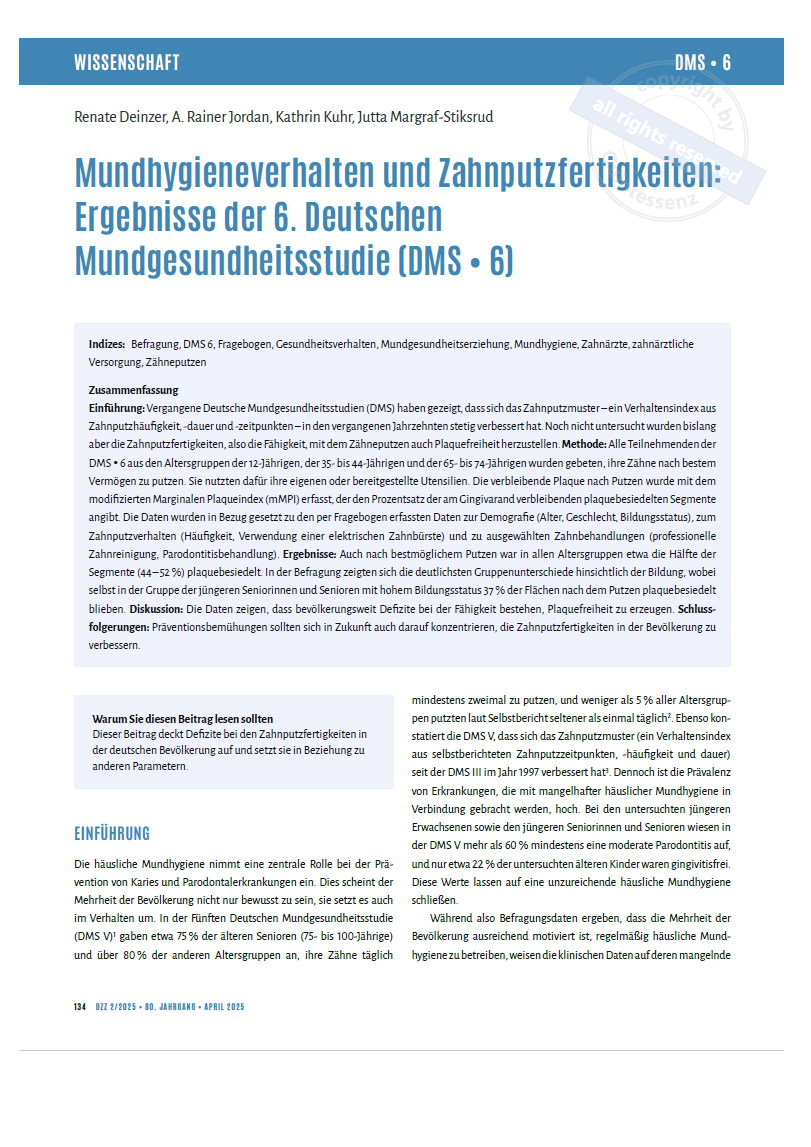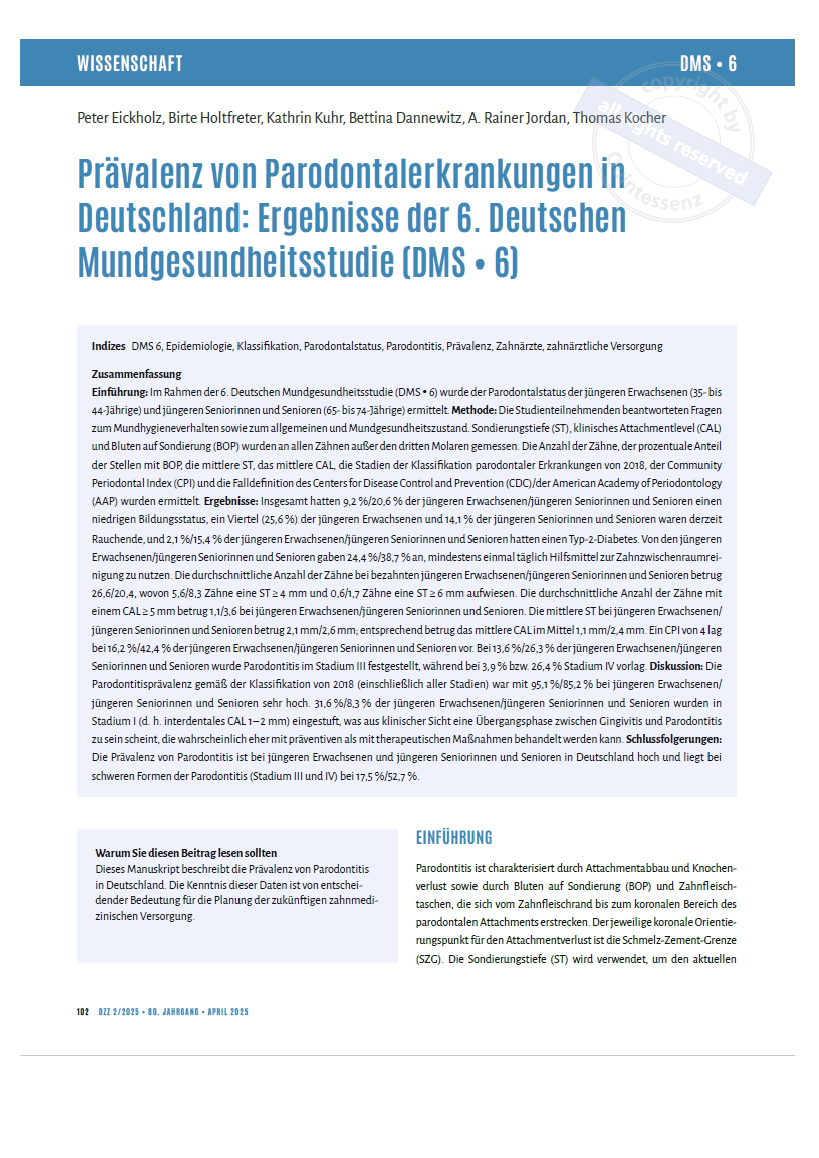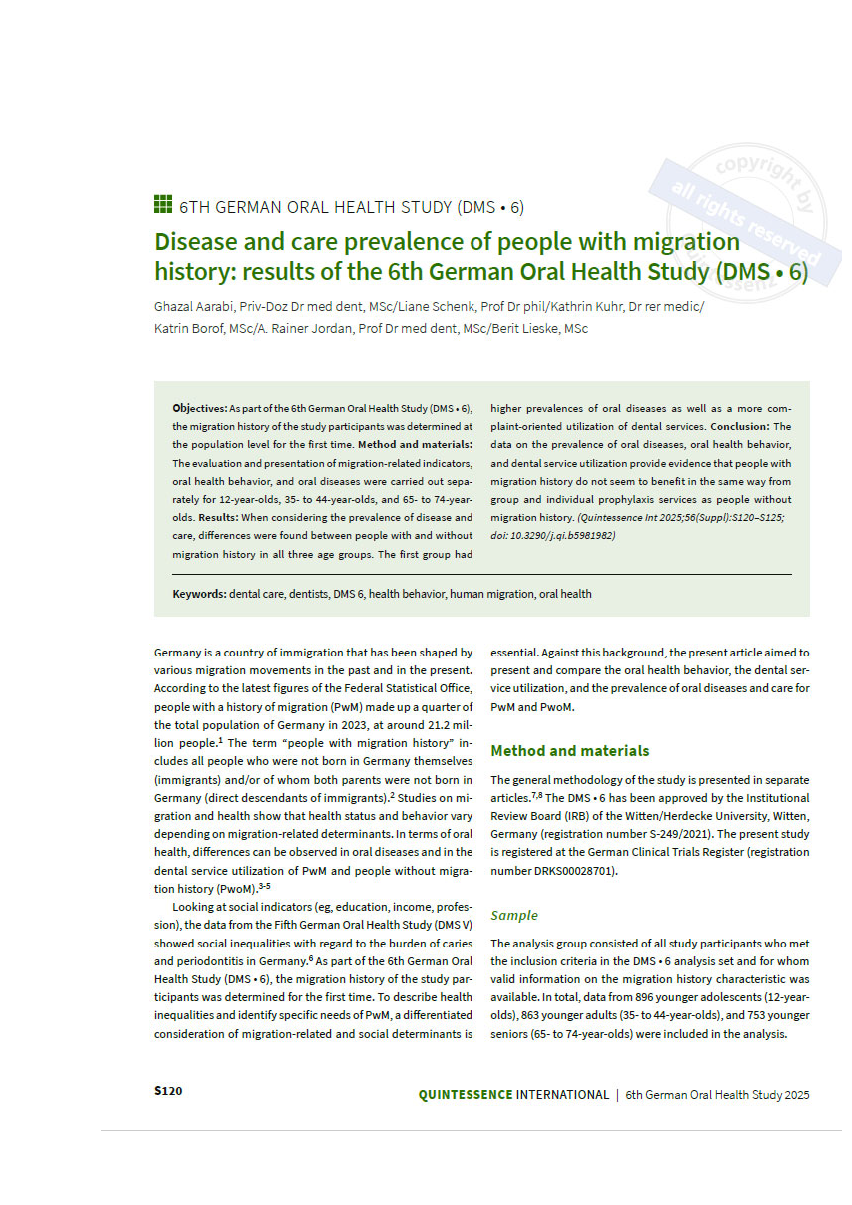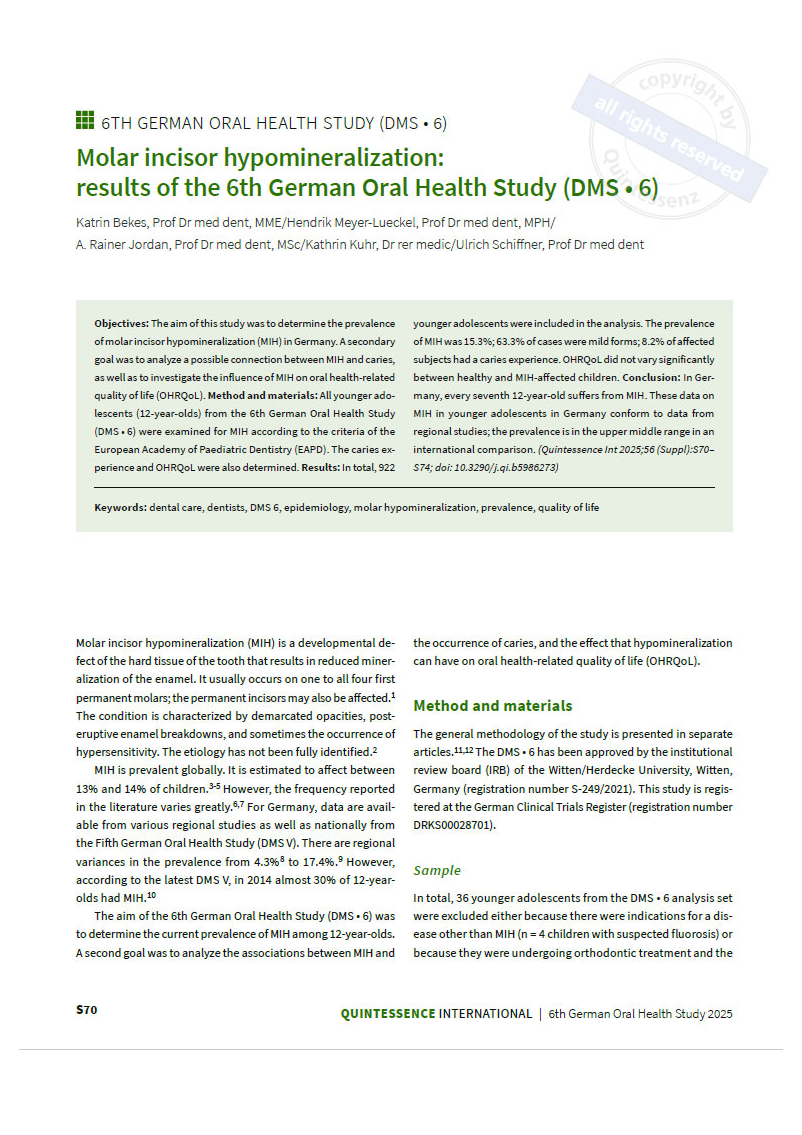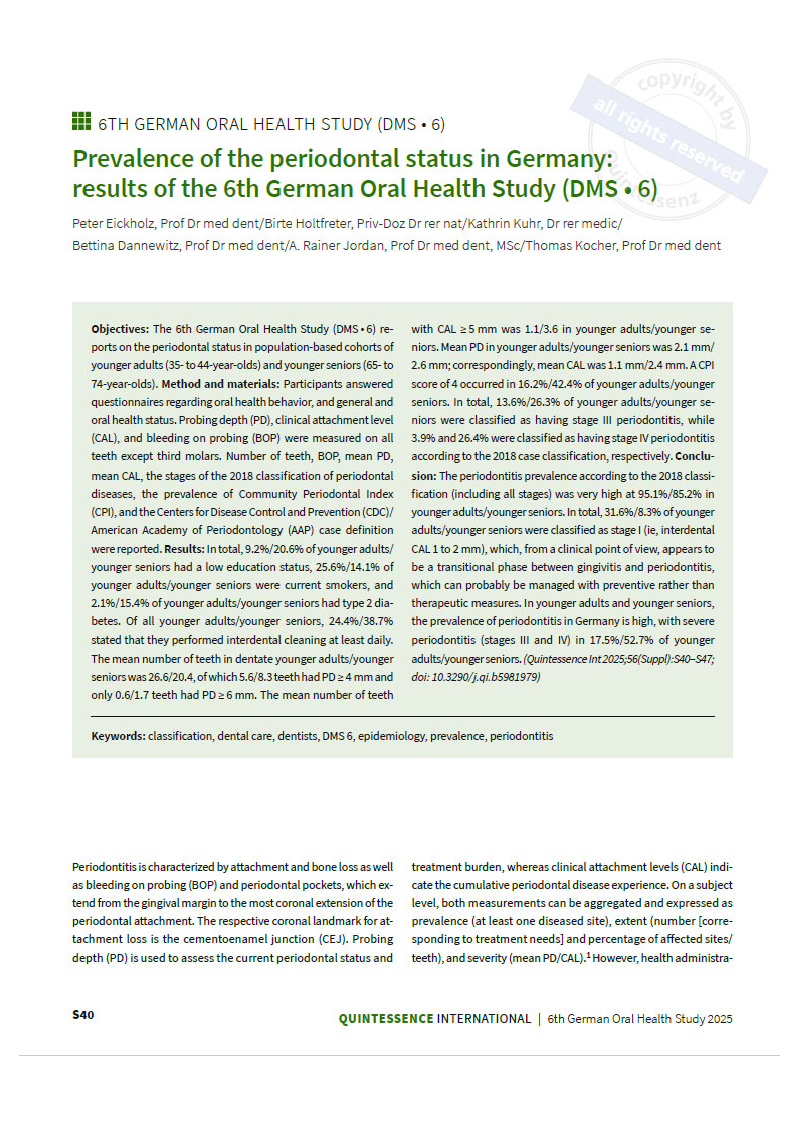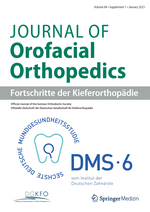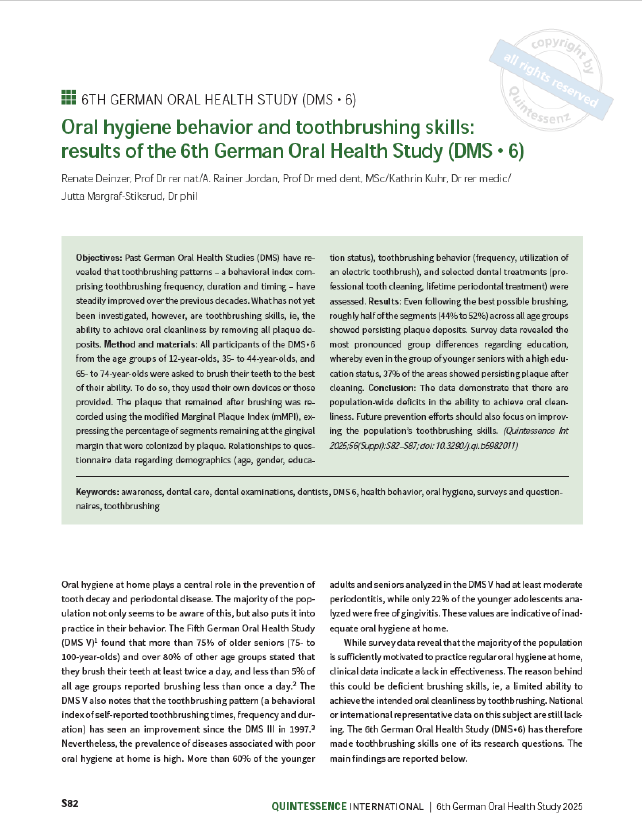
Deutsche Mundgesundheitsstudien
Autoren
Deinzer, Renate
Jordan, A. Rainer
Kuhr, Kathrin
Margraf-Stiksrud, Jutta
Schlagwörter
Awareness
Behavior
Dental care
Dental examinations
Dentists
DMS 6
Oral hygiene
Surveys and questionnaires
Toothbrushing
Publikation — Zeitschriftenbeiträge
Titel
Oral hygiene behavior and toothbrushing skills: results of the 6th German Oral Health Study (DMS • 6)
Titel kurz
Quintessence Int
Titel Ausgeschrieben
Quintessence International
Jahr
2025
Ausgabe
56 (Suppl.)
Seitenzahl
S82-S87
Erscheinungsdatum
17.03.2025
Oral hygiene behavior and toothbrushing skills: results of the 6th German Oral Health Study (DMS • 6)
Objectives: Past German Oral Health Studies (DMS) have revealed that toothbrushing patterns – a behavioral index comprising toothbrushing frequency, duration and timing – have steadily improved over the previous decades. What has not yet been investigated, however, are toothbrushing skills, ie, the ability to achieve oral cleanliness by removing all plaque deposits.
Method and materials: All participants of the DMS • 6 from the age groups of 12-year-olds, 35- to 44-year-olds, and 65- to 74-year-olds were asked to brush their teeth to the best of their ability. To do so, they used their own devices or those provided. The plaque that remained after brushing was recorded using the modified Marginal Plaque Index (mMPI), expressing the percentage of segments remaining at the gingival margin that were colonized by plaque. Relationships to questionnaire data regarding demographics (age, gender, education status), toothbrushing behavior (frequency, utilization of an electric toothbrush), and selected dental treatments (professional tooth cleaning, lifetime periodontal treatment) were assessed.
Results: Even following the best possible brushing, roughly half of the segments (44% to 52%) across all age groups showed persisting plaque deposits. Survey data revealed the most pronounced group differences regarding education, whereby even in the group of younger seniors with a high education status, 37% of the areas showed persisting plaque after cleaning.
Conclusion: The data demonstrate that there are population-wide deficits in the ability to achieve oral cleanliness. Future prevention efforts should also focus on improving the population’s toothbrushing skills.

